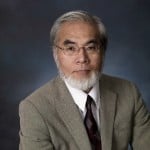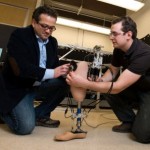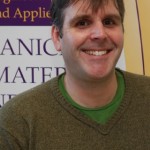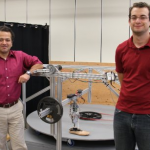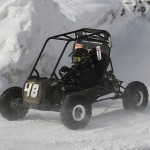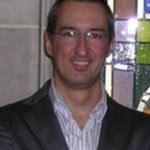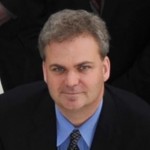 The ME-EM Graduate Seminar speaker on Thursday, March 26 at 4:00 in 103 EERC will be Dr. Chester Wilson, Associate Professor—Electrical Engineering and the Institute for Micromanufacturing (IfM), Louisiana Tech University.
The ME-EM Graduate Seminar speaker on Thursday, March 26 at 4:00 in 103 EERC will be Dr. Chester Wilson, Associate Professor—Electrical Engineering and the Institute for Micromanufacturing (IfM), Louisiana Tech University.
The title of his presentation will be ‘Micro- and Nanotechnologies for Americas Strategic Challenges’.
A variety of significant challenges face the United States and the world in the next few decades. My research group works on micro and nanotechnologies that we hope might provide some help towards meeting these challenges. Our group develops nanoparticle doped radiological scintillators that produce high specificity in neutron detection. This is important as nuclear weapons product neutrons and little else does. We have developed a nanostructured catalyst that is bulk produced to facilitate converting natural gas to synthetic gasoline and diesel. An economic proof of principle five million dollar pilot plant is being constructed in Louisiana. Regular bullets do not support mounted sensors, as they accelerate too fast. Our group has developed rocket bullets, which accelerate at 500G’s, while still reaching traditional velocities. We are also working with nanoparticle doped electrospun polymers and filaments for 3D printing to develop a variety of applications for the Department of Defense.
Dr. Chester Wilson is currently an Associate Professor with the department of Electrical Engineering and the Institute for Micromanufacturing (IfM) at Louisiana Tech University. He is a faculty affiliate with Physics, Microsystems, and Nanotechnology. He received his BS in Electrical Engineering at Seattle University in 1991, his MS in Applied Physics at the University of Washington-Seattle in 1996, and his Ph.D. in Electrical Engineering at the University of Wisconsin-Madison in 2002. Dr. Wilson’s research experience is in Micro/Nanosystems, E and M waves/Plasmas, and Optical detection systems. He has an active research program in the areas of Homeland security detection systems, synthetic energy, nuclear monitoring, DoD Anti-tamper, and munitions. He is involved in numerous ongoing research projects with the industrial partners, DoE, Air Force, Army, and DoD. His previous work on plasma based, EM experiment/modeling, optical devices and radiological systems has been published in over 30 journals, such as JMEMS, IEEE Transaction on Electron Devices, and the Journal of Applied Physics. Dr. Wilson has over fifteen patents, fifty invention disclosures, has multiple corporate IP licenses, and has been awarded over 10 million dollars in research grants/contracts.

